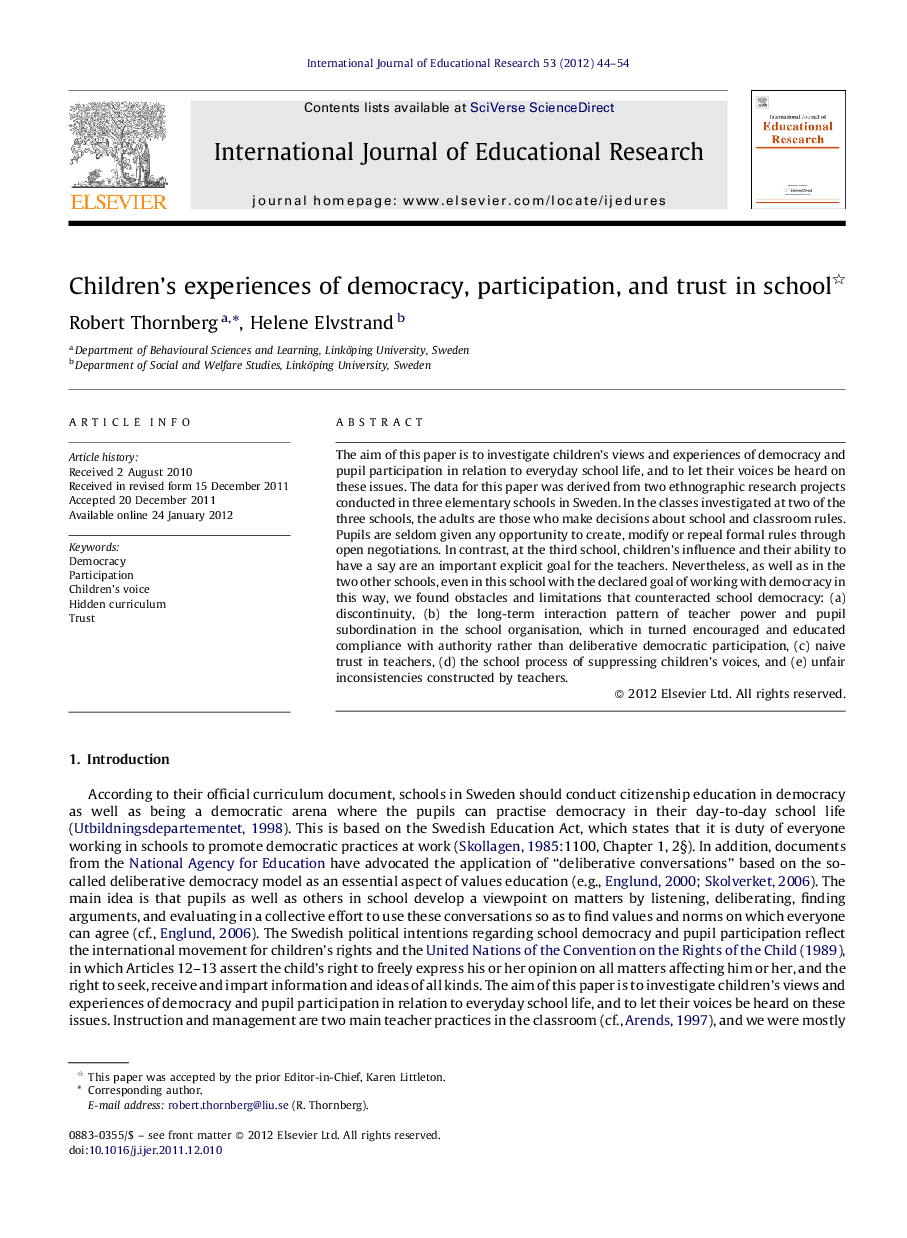| Article ID | Journal | Published Year | Pages | File Type |
|---|---|---|---|---|
| 357013 | International Journal of Educational Research | 2012 | 11 Pages |
The aim of this paper is to investigate children's views and experiences of democracy and pupil participation in relation to everyday school life, and to let their voices be heard on these issues. The data for this paper was derived from two ethnographic research projects conducted in three elementary schools in Sweden. In the classes investigated at two of the three schools, the adults are those who make decisions about school and classroom rules. Pupils are seldom given any opportunity to create, modify or repeal formal rules through open negotiations. In contrast, at the third school, children's influence and their ability to have a say are an important explicit goal for the teachers. Nevertheless, as well as in the two other schools, even in this school with the declared goal of working with democracy in this way, we found obstacles and limitations that counteracted school democracy: (a) discontinuity, (b) the long-term interaction pattern of teacher power and pupil subordination in the school organisation, which in turned encouraged and educated compliance with authority rather than deliberative democratic participation, (c) naive trust in teachers, (d) the school process of suppressing children's voices, and (e) unfair inconsistencies constructed by teachers.
► Children's voice in school is often suppressed and its value minimized. ► Compliance with authority rather than democratic participation. ► The problem with naïve trust as well as mistrust in teachers. ► Teachers’ discontinuities and unfair inconsistencies counteract school democracy.
